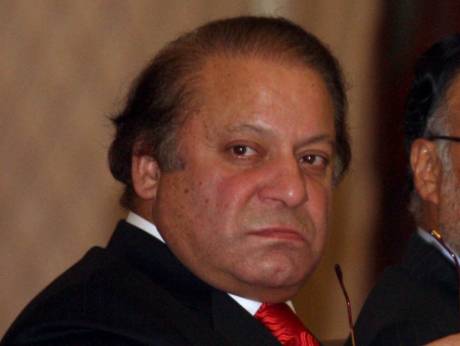- The common man hopes that general elections in 2018 will help the new leadership to steer the country to safer shores
Gulf News
Farhan Bokhari

As Pakistan ends a tumultuous year marked by mounting political uncertainty and the unravelling of an exaggerated economic success story, the coming year will hardly lift the prospects. Even before the July 2017 disqualification of former prime minister Nawaz Sharif under a Supreme Court order, 2018 was set to take the country through a period of uncertainty. With elections due by late summer, Pakistanis await the outcome of the country’s next political transition.
Yet, Sharif who continues to lead the ruling Pakistan Muslim League-Nawaz (PML-N) chose to defy the court verdict that forced him out, effectively provoking some very uncomfortable questions about the country’s democratic evolution. Sharif and his cronies continue to paint the verdict as a conspiracy to oust a forward-looking leader who was poised to take Pakistan through a period of progressive change.
In reality, however, Sharif’s trial, that lasted for more than a year, badly exposed the credentials of mainstream politicians in Pakistan. The trial was triggered after large-scale offshore wealth belonging to three of Sharif’s four children was revealed in the so called ‘Panama leaks’ — a comprehensive expose of questionable wealth belonging to the rich and mighty from across the world and conveniently stashed away in an overseas safe haven.
Consequently, details of the wealth of Sharif’s three children were reported across Pakistan. Today, details of the family’s real estate assets, in the form of luxurious apartments overlooking London’s Hyde Park, have become a matter of household knowledge to most Pakistanis.
In time, these revelations have prompted Pakistanis to demand greater transparency on the wealth of politicians when contestants for the next elections are scrutinised. While this realisation could help to improve the quality of the political transition, Pakistan faces major challenges over its economy.
Though Ishaq Dar, until recently the finance minister, often claimed credit for overseeing a significant economic turnaround, that claim has vanished into thin air in recent months. Dar’s rise to becoming the most powerful member of Sharif’s Cabinet was widely seen as a consequence of his close ties to the former prime minister — one of Dar’s sons was married to one of Sharif’s daughters, creating a typical south Asian familial bond between the two men.
Amid the stark reality of continued political uncertainty, many well-respected analysts have raised questions over the pace at which the country’s foreign debt rose alarmingly during Sharif’s tenure.
Meanwhile, a yawning international trade deficit has fuelled Pakistan’s current account deficit, adding pressure on the rupee. Towards the end of this year, an effective devaluation of the currency brought hope for otherwise stalled exports to stage a recovery. However, that ray of hope also coincided with warnings of a faster build-up of inflation in the coming months.
In this otherwise bleak environment, the government has announced an end to chronic electricity shortages that have remained the biggest challenge to ordinary people for almost a decade. On the face of it, however, many Pakistanis remain sceptical and for good reason: In an election year, the country’s ruling elite tends to force a bit of good news on its subjects as a sop to win votes. Overall, however, the arrival of the New Year in Pakistan coincides with questions over the future of civil-military relations. Half of the country’s 70 years of existence after Independence in 1947 has been spent under the military’s rule. Sharif and his cronies have made veiled references to a military conspiracy behind the former premier’s ouster, triggering widespread speculation that the former leader was seeking to target army generals. But former and serving senior army officers dismissed such claims. If anything, such baseless allegations will only further vitiate the atmosphere. One unwelcome outcome for Pakistan’s democracy will be the further weakening of a parliamentary order that many already consider weak to resolve the country’s key challenges.
For many ordinary Pakistanis, away from the many machinations in the corridors of power in Islamabad, there were just too many signs of neglect across the country. Sharif’s well-known passion to oversee one fanciful transport project after another has indeed led to the establishment of a new bus service between Islamabad and its sister city of Rawalpindi.
Though this metro bus project is impressive, there are too many pressing needs that ought to be addressed on a priority basis. Air-conditioned buses introduced during Sharif’s tenure ply through neighbourhoods with neglected government hospitals and government schools.
Amid this scenario, Pakistanis have the right to ask if the upcoming democratic transition in 2018 will change the country’s destiny and set the course to meet the needs of the public? The answer is: It’s up to the public to elect the leaders they want, to lead the country in the New Year.



